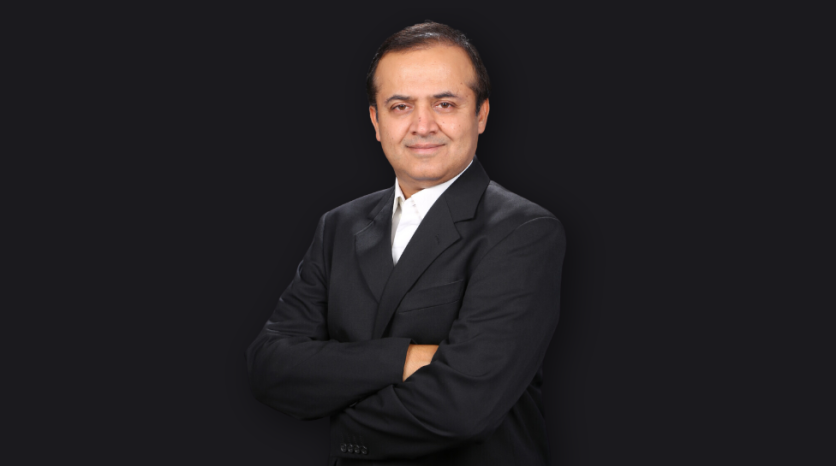The telecommunications industry is one of the most dynamic and rapidly evolving sectors globally. With the increasing demand for connectivity and digital services, telecom companies and suppliers are facing numerous challenges in 2024. In an exclusive interview with Dheeraj Bhargava, a widely recognized leader in the telecommunications industry with 28 years of experience, he identified the significant risks that the industry needs to address to stay competitive and relevant in 2024.

Dheeraj has a wealth of knowledge and experience in business operations and is highly focused on the IT and telecom industries. He has done industry-leading work in IT performance management, process design, telecom software development, project management, and customer service. His impressive track record includes enterprise-wide deployment of ITIL v3.0 processes and MIS framework across Vodafone Enterprise, setting up an IT Network Operations Center (NOC) for a global mobile giant, revamping call centers and customer management for TTL Telecommunications, and delivering 2341 IT functionalities by managing the software development life cycle (SDLC) in a Scandinavian Multinational. At Apple, he has led the company's enterprise business initiative and introduced important innovations.
Neglecting the evolving necessities in privacy, security, and trust:
According to Dheeraj, this is one of the most significant challenges that the telecom industry is facing today. With the increasing reliance on digital platforms, the protection of customer data is more critical than ever. Telecom companies need to invest in robust security measures and build trust with their customers by being transparent about their data usage policies. Dheeraj emphasizes that "telecom companies need to prioritize privacy and security as a fundamental aspect of their business strategy."
Ignoring the agenda of Sustainability
Another challenge that the industry needs to address is 'Sustainability'. Telecom companies need to take a proactive approach to reducing their carbon footprint and promoting sustainable practices. This includes investing in renewable energy sources, implementing energy-efficient infrastructure, and promoting e-waste recycling. Dheeraj stressed that "sustainability should be an integral part of the telecom industry's business strategy, and companies need to take concrete steps to reduce their environmental impact."
One of the major challenges the telecom industry faces is the shortage of skilled talent. With the increasing demand for digital services, telecom companies need to hire employees with expertise in areas such as data analytics, cybersecurity, and cloud computing. However, the competition for these skills is fierce, and many companies are struggling to attract and retain top talent.
Similarly, the telecom industry is also facing challenges in terms of talent acquisition and retention. With the increasing demand for digital skills, telecom companies need to attract and retain top talent to stay competitive. He shared how companies attract talent so that they can stay ahead of the curve. Dheeraj shared his experience in managing business operations and new go-to-market solutions for a global mobile giant. He believes that "telecom companies need to invest in their employees' development and provide them with opportunities for growth and advancement."
Ignoring the high cost of living
Another significant risk that telecommunication companies and telecom suppliers face today is the ever-growing cost of living and ignoring the needs of customers during the cost-of-living crisis. As households struggle with rising living costs, telecom companies need to offer flexibility and offer affordable plans to retain their customer base. Just recently, Mint published an article covering a recent innovation, 'How Flexible Benefit Plans (FBP) benefit salaried employees.' Dheeraj has capitalized on this concept, using it to craft an industry-leading employee purchase program for the iPhone that has been a game-changer for the telecom industry. Dheeraj believes that "telecom companies need to be more customer-centric and offer personalized services to meet the unique needs of each customer."
Resisting Change
Dheeraj also pointed out the inability to take advantage of new business models as a significant risk. With the rise of new technologies like 5G, IoT, and AI, telecom companies need to adapt to new business models and explore new revenue streams. This includes offering innovative services like smart home solutions, e-health services, and connected car services. Dheeraj believes that "telecom companies need to be more agile and innovative in their approach to stay ahead of the curve." He has demonstrated this agility recently, as he helped one of the largest automotive manufacturers develop a unique "contactless" dealership experience with the emergence of COVID that took advantage of the company's enterprise services and helped the automotive industry weather the pandemic successfully. Another demonstration of agility was how telcos adapted to deliver digital payments through mobile phones and third-party apps. The UPI (Unified Payment Interface) has become a very popular technology that has been promoted by telcos worldwide.
In addition to these challenges, Dheeraj also emphasized the importance of revenue management, billing and collections, and customer service. Telecom companies need to focus on minimizing bad debts and write-offs, improving billing accuracy, and providing world-class customer service. Dheeraj shared his experience in revenue management and minimization of bad debts and write-offs, where he achieved <1% write-offs for Tata group in 2003-04. He also highlighted his experience in setting up e2e customer services outsourced operations and revenue assurance department in 2005 for the company he was working with.
The telecom industry in 2024 is facing a multitude of challenges. However, with the right strategies and a focus on innovation, security, sustainability, and customer service, telecom companies and suppliers can navigate these challenges and thrive in the coming years. Dheeraj's expertise and experience provide valuable insights into the industry's risks and opportunities. As he aptly puts it, "The telecom industry is at a crossroads, and companies that embrace change and innovation will emerge as leaders in the coming years."
ⓒ 2025 TECHTIMES.com All rights reserved. Do not reproduce without permission.

![Best Gaming Mouse For Gamers With Smaller Hands [2025]](https://d.techtimes.com/en/full/461466/best-gaming-mouse-gamers-smaller-hands-2025.png?w=184&h=103&f=6fd057ef777bd39251d4e7e82e9b23f1)


